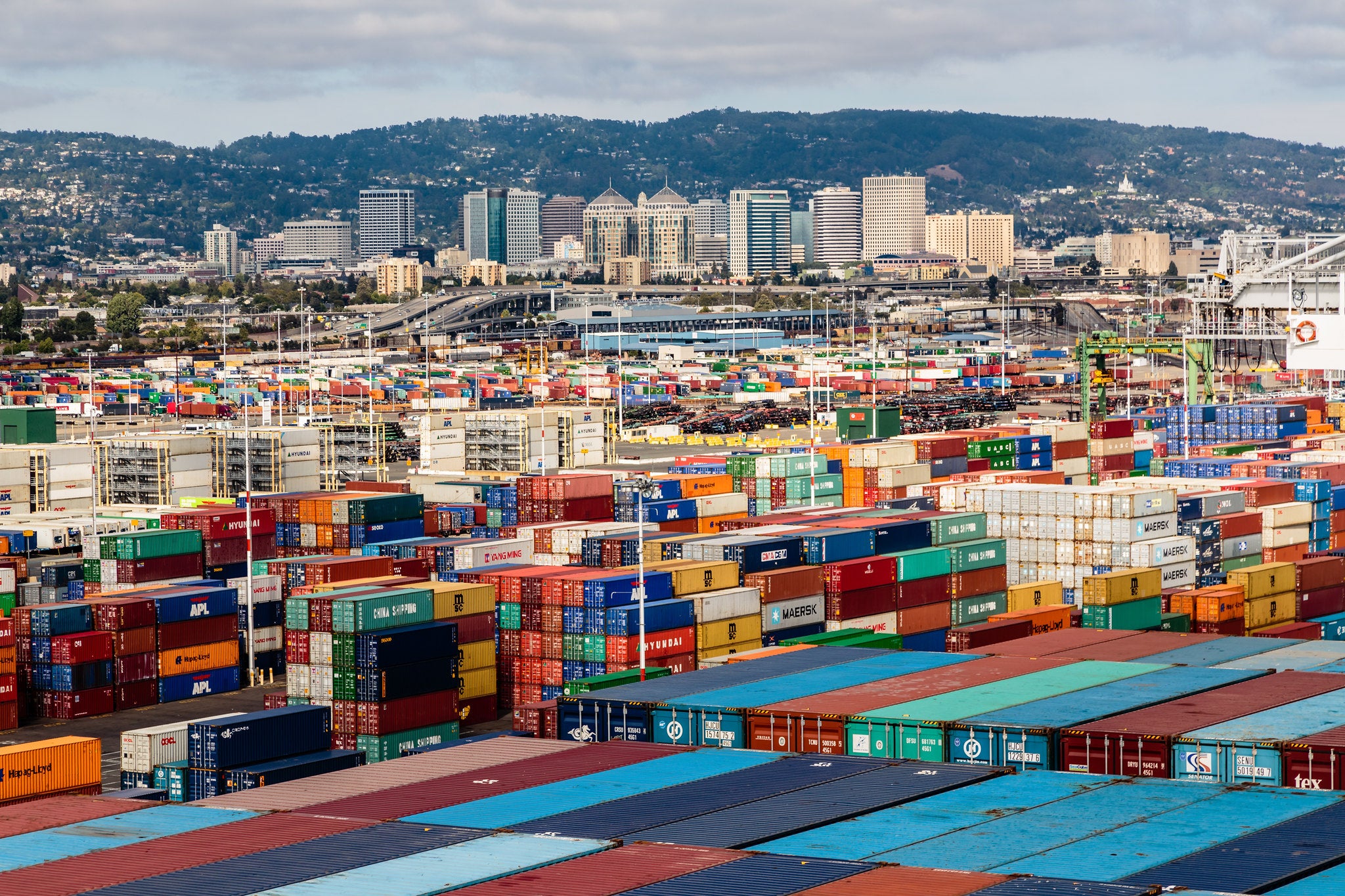Total container volume finishes first quarter strong
The Port of Oakland convened a stakeholder roundtable at Port headquarters regarding tariff impacts. Congresswoman Lateefah Simon (CA-12) and Port of Oakland Executive Director Kristi McKenney led the discussion which featured labor leaders, small business owners and local shippers.
“The Port of Oakland is an economic powerhouse that supports nearly 100,000 good-paying local jobs”, said Port of Oakland Executive Director Kristi McKenney. “A tariff-induced downturn in the Port’s cargo volume—whether from import slowdowns or retaliatory export losses—ultimately could jeopardize job stability and our region’s economic health.”
Countries targeted by U.S. tariffs are likely to impose retaliatory measures that hit American agricultural and manufactured goods—essential exports that move through Oakland. These include almonds, beef, pork, dairy, and recycled materials, much of which is destined for Asia. China currently represents 29% of the Port’s total trade volume. China ranks as the Port’s top import trading partner and third export partner.
Tariff retaliation would directly impact the Port’s top export destinations—Japan, Taiwan, China, and South Korea—and could significantly erode California’s market share for perishable and high-value commodities. Given Oakland’s position as the number one refrigerated export gateway in the U.S., such a loss could be especially damaging to shippers and producers who rely on our port to access overseas markets.
“I’m proud to represent the Port of Oakland, and I know that so many local, union jobs depend on the Port’s robust shipping operations including dockworkers, truck operators, and warehouse workers,” said Congresswoman Lateefah Simon. “I support smart trade policies that uplift workers and lower costs for Oakland’s working families – not an illogical and retaliatory trade war.”
Related :Port of Oakland received two awards 2024

As a critical gateway for global trade and a major economic engine for Northern California, nearly all containerized cargo moving through Northern California goes through the Port of Oakland. Unlike many U.S. ports that lean heavily on imports, Oakland is unique in maintaining a near 50/50 balance of imports and exports. This balanced profile brings strength during periods of economic stability—but increases vulnerability during trade conflicts. Tariffs and retaliatory actions not only suppress import flows but also threaten to eliminate access to key export markets.
Related : Port of Oakland receives about 100 Howard Property RFQ inquirie
On the other hand the Port of Oakland closed the first quarter of 2025 on a strong note. Total container volume rose 7.2% compared to March 2024, with Port operators handling 217,415 TEUs (twenty-foot equivalent units) in March 2025. That performance brings first-quarter volume to 601,527 TEUs—an increase of 6.3% year-over-year.
“As we close the first quarter, we’re encouraged by the steady growth in cargo volume,” said Port of Oakland Maritime Director Bryan Brandes. “At the same time, we’re mindful of evolving trade policy discussions and potential tariff actions that will affect the broader market. We remain committed to providing reliable service, maintaining strong infrastructure, and working closely with our partners to navigate whatever lies ahead.”
Loaded imports reached 87,896 TEUs in March 2025, a 5.3% increase over March 2024. Growth was led by furniture and electric batteries, reflecting continued demand in both consumer goods and renewable energy sectors. A consistent flow of transpacific cargo continues to support Oakland’s inbound volumes.
Related : Port of Oakland appoints new Director of Utilities

Loaded exports edged up 1.1%, with 76,157 TEUs handled in March 2025, compared to 75,352 TEUs in March 2024. While monthly growth was modest, export volumes held steady through the first quarter. Agricultural commodities, including refrigerated cargo, remain a core strength for Oakland, supported by dedicated cold chain infrastructure.
In February 2025, the Port handled 146,104 loaded TEUs. Imports rose 5% year-over-year, reaching 80,582 TEUs compared to 76,734 in February 2024. Full exports totaled 65,522 TEUs, a 5.4% decrease from the 69,242 TEUs recorded in February 2024.
Looking ahead, the Port is closely monitoring global trade conditions and remains focused on long-term resiliency amid ongoing policy and market shifts.




